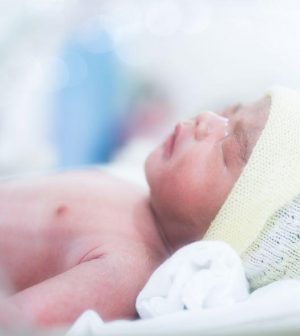- Could Your Grocery Store Meat Be Causing Recurring UTIs?
- Are You Making This Expensive Thermostat Error This Winter?
- Recognizing the Signs of Hypothyroidism
- 10 Strategies to Overcome Insomnia
- Could Artificial Sweeteners Be Aging the Brain Faster?
- Techniques for Soothing Your Nervous System
- Does the Water in Your House Smell Funny? Here’s Why
- Can a Daily Dose of Apple Cider Vinegar Actually Aid Weight Loss?
- 6 Health Beverages That Can Actually Spike Your Blood Sugar
- Treatment Options for Social Anxiety Disorder
A Warming World May Mean More Premature Births

Surging temperatures caused by climate change could lead to more premature births worldwide, a new study reports.
Researchers found a strong association between exposure to extreme heat during the third trimester of pregnancy and the risk of premature delivery.
“High night-time temperatures can disrupt circadian rhythms and potentially influence blood pressure, which may be an issue for pregnant individuals,” said senior researcher Yuming Guo, a professor of planetary health at Monash University in Melbourne, Australia.
“Given the projected increase in extreme temperatures as our planet warms, understanding its impacts on birth outcomes and developing strategies to mitigate the risks becomes crucial,” Guo added in a university news release.
For the study, researchers tracked 1.2 million births in Sydney, Australia, between 2000 and 2022, of which more than 63,000 were preterm.
The team cross-referenced this data with historical temperature data and other factors that can influence exposure to heat, such as tree and greenery cover.
Exposure to both daytime and nighttime extreme heat in the third trimester is strongly tied to an increased risk of preterm birth, researchers found. Such a connection was not present in either the first or second trimesters.
The strength of the association was slightly lowered for women living in areas with more trees and greenery, raising the possibility that shade might protect expecting mothers against shimmering heat.
The new study was published Feb. 26 in the journal JAMA Pediatrics.
“The presence of greenery, especially trees, has the potential to mitigate heat levels and lower the risks of preterm birth associated with heat,” said lead researcher Shanshan Li, an associate professor with the Monash School of Public Health and Preventive Medicine.
“Greenery also has positive physical and mental health impacts beyond just pregnancy and birth outcomes,” Li added. “We should be integrating heat mitigation strategies such as increasing green spaces into urban planning, to improve public health.”
More information
Harvard T.H. Chan School of Public Health has more about preterm birth.
SOURCE: Monash University, news release, Feb. 26, 2024
Source: HealthDay
Copyright © 2026 HealthDay. All rights reserved.










